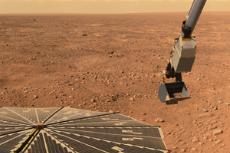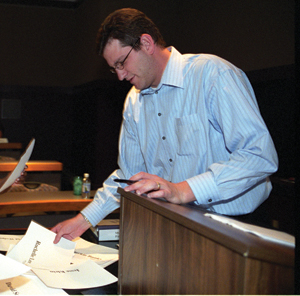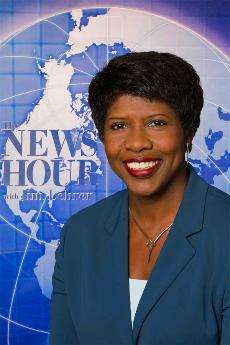 Sam Guzik
Sam GuzikAs the nation waits for Senators John McCain and Barack Obama to choose their respective running mates, no one has a better reason to be curious about the choice than the students, faculty and staff of Washington University, which will be hosting the vice presidential debate on October 2 in anticipation of the 2008 election cycle.
“Because we have the only vice presidential debate, I think it is going to be very interesting to the general public,” Assistant to the Chancellor Rob Wild said. “This is the only time that the vice presidential candidates will have a chance to square off.”
Wild heads the Vice Presidential Debate Steering Committee, a team of 40 University community members in charge of planning and preparing the campus for the debate.
The committee includes representation from public affairs, facilities, the Career Center, the Washington University Police Department, Student Union and the Graduate Professional Council, among others.
“It’s a very experienced committee,” Wild said. “Most of the committee has actually been involved in the planning and facilitation of other debates.”
The University, which hosted presidential debates in 1992, 2000 and 2004, has been selected consecutively by the Commission on Presidential Debates (CPD) to host a debate for every presidential election cycle since 1992. The 1996 debate was canceled after candidates reached a decision to reduce the number of debates from three to two.
The University holds the record among all institutions of higher education for hosting the most national debates.
“We are viewed by the [CPD] as having set the gold standard for hosting debates,” Wild said. “And because our students, our faculty and our staff are so welcoming, we are viewed as a really great place to host a debate.”
The steering committee’s vice chair, Steve Givens, the associate vice chancellor for public affairs, was closely involved with planning for the 2000 and 2004 debates. According to Wild, some members of the committee were even involved with the 1992 debate.
This year’s vice presidential debate will be held in a debate hall constructed within the Athletic Complex Field House, the same location as in previous years. According to Wild, 10 days before the debate, the area surrounding the Athletic Complex and the space inside will begin to undergo the necessary physical changes for the debate.
Construction inside the Field House will include the installation of a stage where the debate will take place as well as various platforms for national news networks. The Recreational Gym will be transformed into a space for the general news media in what is known as “Spin Alley.”
The costs of revamping the Athletic Complex, providing additional security and other preparations will make the debate an event of no small expense, Wild says, but it is one that “is important to the life of our campus.”
“Wash. U. is taking every opportunity that comes [its way] to become more politically active,” President of the College Democrats and junior Ben Guthorn said. “The debate will integrate the campus and increase our political awareness and awareness of this ongoing election.”
According to Guthorn, the College Democrats hope to use the opportunity to recruit more members and to show students how they can effect political change. Senior Charis Fischer, the president of the College Republicans, feels the same way.
“[We] will use this opportunity to encourage people who haven’t been politically active in the past to come out and express their support for John McCain,” Fischer said. “It may seem like all college students are crazy for Obama, but we want to show that there are a lot of us who aren’t afraid to think for ourselves and vote for John McCain.”
Guthorn believes that students, faculty and other members of the community, no matter which side they support, will be roused and motivated by the debate’s high energy atmosphere.
“Whatever they think the word ‘change’ means, they will definitely feel excited [from] the political climate,” he said. “People will feel it and they will know that they have to care and that they have to make a decision about their vote.”
Wild added that the activity surrounding the debate will energize students.
“The level of excitement of students in the past has been very, very high. You will see a lot of news media on campus. There is a lot of attention centered on us,” Wild said.
According to Wild, the CPD gives a certain number of entry tickets into the debate to the University, which has promised to give every single ticket to University students through a random lottery. Wild does not know how many tickets the University will receive this year, although the steering committee has received more than 3,000 applications so far.
The debate steering committee is also currently accepting applications online for student, faculty and staff volunteers for the debate. To learn about volunteer opportunities, visit debate.wustl.edu.
 Sam Guzik
Sam Guzik NASA | JPL-CALTECH | UNIVERSITY OF ARIZONA
NASA | JPL-CALTECH | UNIVERSITY OF ARIZONA Sam Guzik
Sam Guzik WUSTL Photo Services
WUSTL Photo Services PBS
PBS